
January 2
1847 Birth: Paul Von Hindenburg: German military officer and politician:
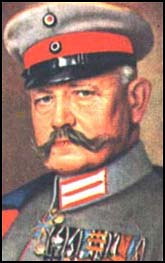
Paul von Hindenburg was born . . . in Posen, Prussia (now Poznan, Poland) into an aristocratic German family. During an honourable but undistinguished military career, he served in the Austro-Prussian War of 1866 and in the Franco-Prussian War of 1870-71, retiring in 1911. However, in 1914 he was recalled as the nominal superior of Erich Ludendorff, a talented military strategist. Credit for Ludendorff's invasion of Russia was misdirected to Hindenburg, who was appointed field marshal and commander of all German land forces, with Ludendorff at his side. Hindenburg oversaw the mobilisation of the whole German state for war, and became immensely popular throughout the country. Kaiser Wilhelm II was sidelined.
After Germany's defeat in 1918 Hindenburg retired, but in 1925, largely because of his status as a war hero, he was elected president of Germany. In 1930, as economic depression took hold and another government fell, he appointed a cabinet accountable only to him and in July authorised Chancellor Heinrich Bruening to dissolve the Reichstag. New elections saw the National Socialists emerge as the second largest party and with parliamentary cooperation withering, Brüning governed almost exclusively by decree. His deflationist policies aggravated the economic difficulties and unrest mounted, fuelled by the Nazis. Hindenburg was re-elected president in 1932, mainly with the support of those who saw him as a protection against Nazi lawlessness and brutality. Yet Hindenburg's own circle thought the Nazis as a useful--albeit unpleasant--group, who were worth accommodating.
Two successive governments failed to win Nazi support as Adolf Hitler insisted on becoming chancellor in any government in which his party participated. Despite considerable pressure, Hindenburg refused to appoint him. But in November 1932 an agreement was reached between Hitler and Franz von Papen--a former chancellor--to form a government with Hitler as chancellor, but with non-Nazis in most other posts. Once in office, Hitler quickly secured almost unlimited political power through terror and manipulations. Hitler was publicly respectful to Hindenburg, who remained in office until his death on 2 August 1934. (BBC.co)
1851 Ferdinand Foch: French army general:

Ferdinand Foch was born in 1851 in Tarbes in the Hautes-Pyrenees. Foch fought in the Franco-Prussian War of 1870-71 and became an artillery specialist. In 1907, he was appointed as head of the École de Guerre, a position he held until 1911.
When war broke out in August 1914, Foch commanded the French Second Army. This army stopped the German advance on Nancy. As a result of this success, Foch was given the command of the French Ninth Army which fought at the Battle of the Marne--the battle that stopped the German advance on Paris. After this battle, he served in Flanders and became commandant of the French Army Group that fought at the Battle of the Somme.
In 1916, he retired but returned to duty in May 1917, when he was appointed chief-of-staff to Marshal Petain. . . . In April 1918, Foch was appointed supreme generalissimo of the Allied forces on the Western Front--a position that gave him supreme command over all Allied forces on the Western Front. In July 1918, Foch put into operation a successful counter-offensive against the Germans along the Marne River. In August 1918, Foch followed this up with a series of operations which led to the Germans seeking an armistice in November 1918. For this reason, Foch was credited with masterminding the victory over Germany.
Foch then played a prominent part in the lead up to the Treaty of Versailles during which he tried to get Georges Clemenceau to impose far more harsh terms on the Germans so that the Germans could never pose another military threat to Europe again. After the signing of the treaty, Foch retired from public life. . . .
Marshal Ferdinand Foch died in 1929.
1869 Birth: Mohandas Karamchand Gandhi:

Born in Porbandar, India, Mahatma Gandhi studied law and advocated for the civil rights of Indians, both at home under British rule and in South Africa. Gandhi became a leader of India’s independence movement, organizing boycotts against British institutions in peaceful forms of civil disobedience. He was killed by a fanatic in 1948. [For further information, click here.]
1871 Birth: Cordell Hull: Major political leader of Tennessee and 47th Secretary of State of the United States:
He is credited as the longest-serving Secretary of State remaining in the position for eleven consecutive years. Hull served the country from 1933 to 1944 and was a close ally to the then president Franklin Delano Roosevelt who called him the father of the 'United Nations' for his notable contribution in the creation of the organization. In 1945, the Norwegian Nobel Committee honored Hull with the Nobel Peace Prize for his contribution in the establishment of the United Nations. In a political career of ups and down, Cordell drew heavy criticism on his stand on the Jews (Victims of the Nazi Holocaust) entry in the country after he advised the president to refuse shelter. Hull died after suffering a series of strokes and cardiac arrests on 23 July 1955. [For further information, click here.]
1888 Death: Ida Hitler—15 months old—of diphtheria, leaving Klara Hitler, recently a mother of three, childless with two step-children to care for. [For further details, Click here.]
1895 Birth: Count Folke Bernadotte—in Stockholm, Sweden:
A descendent of the Napoleonic marshal Jean Bernadotte, who in 1810 was elected crown prince of Sweden, and in 1818 succeeded to the throne as Charles XIV, Count Bernadotte was also a grandson of King Oscar II of Sweden and a nephew of King Gustav V. After graduating from the military school of Karlberg, he studied horsemanship at the Stromsholm military riding school and became cavalry office in the Royal Horse Guards. . . .
At the beginning of World War II, as head of the Sveriges Scoutforbund (the Swedish Boy Scouts), he integrated that organization into Sweden's defense system, training the scouts in anti-aircraft work and as medical assistants. His most important war work, however, was as vice chairman of the Swedish Red Cross, supervising the exchange of disabled British and German war prisoners. This work necessitated frequent trips to London and Berlin involving conferences with high officials of both countries. Just before the end of the war, he led a rescue operation transporting interned Norwegians, Danes and western European inmates from German concentration camps to hospitals in Sweden. Around 15,000 people were taken to safety in the "White Buses of the Bernadotte expedition among them few thousand Jews.
In the spring of 1945, while working in the Swedish legation's temporary headquarters at Friedrichsruh, Germany, he was summoned by Heinrich Himmler, head of the Gestapo and commander-in-chief of the German home front. They met at Lübeck, Germany, on April 24. Asserting that Hitler was dying and that he was in authority, Himmler offered the complete surrender of Germany to Britain and the United States, provided Germany was allowed to continue resistance against Russia. The Swedish foreign office transmitted Himmler's offer to Prime Minister Churchill and President Truman. They in turn notified Premier Stalin, advising him at the same time of the British-American decision to accept only an unconditional surrender to the three Allied governments. . . .
On May 20, 1948, the five big powers of the United Nations Security Council agreed in the choice of Count Bernadotte as mediator to seek peace in the Arab-Jewish conflict in Palestine. Ten days later he initiated conferences with Arab and Jewish leaders in Palestine and Arab leaders in Cairo, Egypt, and Amman, Jordan. He succeeded in obtaining agreement to a four-week truce commencing June 11. On June 28 he submitted to the Arab League and the Israeli government a peace plan that both sides rejected in part. On July 12 he made a report to the United Nations Security Council, in session in New York, and shortly thereafter returned to Palestine.
On September 17, Count Bernadotte and Colonel Andre P. Serot of the French air force were assassinated in Jerusalem by members of the Stern group, an organization of radical Zionists who had committed numerous attacks over a period of years against the British and Arabs. Three days after his death, Count Bernadotte's final report on his peace efforts was published in Paris. It gave the United Nations General Assembly his suggested terms for a peace that was to be imposed by the United Nations, and won the immediate support of the United States and Britain. [For further information, click here]
1905 Russo-Japanese War: Russian fleet surrenders at Port Arthur:
During the Russo-Japanese War, Port Arthur, the Russian naval base in China, falls to Japanese naval forces under Admiral Heihachiro Togo. It was the first in a series of defeats that by June turned the tide of the imperial conflict irrevocably against Russia.
In February 1904, following a Russian rejection of a Japanese plan to divide Manchuria and Korea into spheres of influence, Japan launched a surprise naval attack on Port Arthur, decimating the Russian fleet. In the subsequent fighting, Japan won a series of decisive victories over the Russians, who underestimated the military potential of its non-Western opponent.
In January 1905, the strategic naval base of Port Arthur fell to the Japanese; in March, Russian troops were defeated at Shenyang, China, by Japanese Field Marshal Iwao Oyama; and in May, the Russian Baltic fleet under Admiral Zinovi Rozhdestvenski was destroyed by Admiral Togo's fleet near the Tsushima Islands. These three crucial defeats convinced Russia that further resistance against Japan's imperial designs on East Asia was hopeless, and in August 1905 President Theodore Roosevelt mediated a peace treaty at Portsmouth, New Hampshire.
Japan emerged from the conflict as the first modern non-Western world power and set its sights on greater imperial expansion. For Russia, however, the disastrous performance in the war was one of the immediate causes of the Russian Revolution of 1905. (History.com)
1918 World War I: Bolsheviks threaten to re-enter the war unless Germany returns occupied territory. 1919 U.S President Woodrow Wilson suffers massive stroke:

On October 2, 1919, at the White House in Washington, D.C., United States President Woodrow Wilson suffers a massive stroke that leaves him partially paralyzed on his left side and effectively ends his presidential career.
At the time of the stroke, Wilson had poured all his strength into a last-ditch effort to win public support for the Versailles Treaty and its vision of international cooperation through a League of Nations in the aftermath of the devastating First World War. After the Senate Foreign Relations Committee began its debate on the treaty at the end of July, Wilson took the unprecedented step of appearing personally before the committee to argue strenuously for ratification, making it clear he would accept no changes to the treaty as written. While the committee—headed by Wilson’s nemesis, Republican Senator Henry Cabot Lodge—voted on various amendments to the treaty, Wilson took his case to the American people, ignoring his doctors’ advice and embarking on a whistle-stop tour of the country to drum up support for the treaty and the League. [For further information, click here.]
1921 Death: Theobald von Bethmann Hollweg:
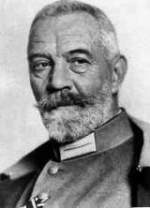
Theobald von Bethmann Hollweg is most famous as the Chancellor of Germany at the start of World War One. Bethmann Hollweg was also the politician who sanctioned the use of unrestricted submarine warfare that led to the entry of America into World War One. [For further information, click here.]
1923 Various: Holocaust: Alfred Rosenberg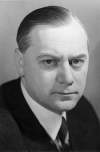
The Protocols of the Wise Men of Zion, since become so famous, fell into the hands of Alfred Rosenberg. A mysterious occurrence. Rosenberg himself has often told how the unknown suddenly stepped into his room, laid down the book, and silently departed. To Rosenberg it was a sign from heaven. Both the place and the hour were significant. Moscow, 1917. Far to the west, the German-Russian phase of the First World War was drawing to an end in crumbling trenches; in the streets of the capital, the Russian Revolution was ebbing and flowing. Alfred Rosenberg, the son of a shoemaker, born in Reval (Tallinn) on the Baltic, was then twenty-four years old; he was of German descent but as an Esthonian, he was a subject of the Russian tsar. He had been raised in the German and Russian languages; he had first studied engineering and architecture at Riga, also on the Baltic; then, when the German army occupied Riga, he had fled. Now he was studying in Moscow. The globe was afire. The tsar's empire was crumbling. Perhaps there would never again be peace. Perhaps this book would tell him why. The demon, who had incited the nations against each other, had spoken. Perhaps he, Alfred Rosenberg, understood him better than others.
Germany: Inflation: The German economy is crippled. In 1918, the exchange rate, four marks to the dollar in 1918, is now more than 7,000 to the dollar. (THP)
1925 Weimar:
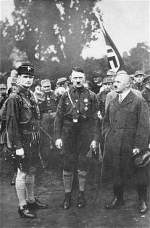
Rudolf Hess and several other Nazis are released from Landsberg prison and quickly rejoin Hitler.
1929 Holocaust: The Nazi Party obtains rights to Gottfried zur Beek's translation of the spurious forgery The Protocols of the Elders of Zion:
It must be noted that men with bad instincts are more in number than the good, and therefore the best results in governing them are obtained by violence and terrorization, and not by academic discussions. Every man aims at power, everyone would like to become a dictator if only he could, and rare indeed are the men who would not be willing to sacrifice the welfare of all for the sake of securing their own welfare. What has restrained the beasts of prey who are called men? What has served for their guidance hitherto? In the beginnings of the structure of society they were subjected to brutal and blind force; afterwards—to law, which is the same force, only disguised. I draw the conclusion that by the law of nature right lies in force. Political freedom is an idea but not a fact.
1934 Sterilization: A German law is passed for sterilization of the 'unfit.'
1935 Various:
Switzerland:
USA: Bruno Hauptmann goes on trial in Flemington, N.J., on charges of kidnapping and murdering the infant son of Charles and Anne Lindbergh. He will be found guilty and executed. (AP)
1941 World War II: War in the Air:
Ireland:
Wales: Llandaff Cathedral in Cardiff is severely damaged by German bombing during the Cardiff Blitz. [For further information, click here]
1942 World War II: Various: War against Japan: Philippines:
[Filipino] leaders present were asked to choose three options; (1) a purely Japanese military administration, (2) a dictatorial government run by a Filipino under General Artemio Ricarte who went on self-exile to Japan after the Filipino-American war, or (3) a government by commission selected by Filipinos. Vargas and the local leaders chose the third option and established the Philippine Executive Commission to manage initially Greater Manila, and was later expanded to cover the whole of the Philippines.
Espionage:
In the largest espionage case in American history, over 30 members of a German spy ring led by former South African Boer soldier and adventurer Fritz Joubert Duquesne were convicted following an investigation by the Federal Bureau of Investigation (FBI). [See: Espionage de luxe.]
Navy opens a blimp base in New Jersey:
On this day, the Navy Airship Patrol Group 1 and Air Ship Squadron 12 are established at Lakehurst, N.J. The U.S. Navy was the only military service in the world to use airships—also known as blimps—during the war.
The U.S. Navy was actually behind the times in the use of blimps; it didn't get around to ordering its first until 1915, at which time even the U.S. Army was using them. By the close of World War I, the Navy had recognized their value and was using several blimps for patrolling coastlines for enemy submarines. They proved extremely effective; in fact, no convoy supported by blimp surveillance ever lost a ship.
Between the wars, it was agreed that the Army would use nonrigid airships to patrol the coasts of the United States, while the Navy would use rigid airships (which were aluminum-hulled and kept their shape whether or not they were filled with gas) for long-range scouting and fleet support. The Navy ended its construction and employment of the rigid airships in the 1930s after two, the Akron and the Macon, crashed at sea. In 1937, the Army transferred all its remaining nonrigid blimps to the Navy.
Meanwhile, in the civilian world, the Hindenburg, a commercial dirigible, burst into flames over Lakehurst on May 6, 1937. Thirty-six of the 97 passengers aboard were killed. The explosion was caused by an electric discharge that ignited a hydrogen gas leak; the tragedy effectively ended the use of airships for commercial travel, but they were still used to great advantage in the U.S. military.
At the outbreak of World War II, the Navy had 10 blimps in service; that number expanded to 167 by the end of the war. The only U.S. blimp lost was the K-74, which, on July 18, 1943, spotted a German U-boat. The blimp opened fire on the submarine and damaged it, but only one of its two depth charges released. The submarine fired back and sent the blimp into the sea, but the crew was rescued. The only German blimp involved in the war was a passenger craft, Graf Zeppelin, which was used for electronic surveillance just before the outbreak of the war. (History.com)
No separate peace: Twenty-eight nations, who are at war with the Axis, pledge no separate peace.
1943 World War II: Various: Marshal Antonescu
Holocaust: More than 10,000 Jews from Holland, Belgium, Berlin, and Theresienstadt are deported to Auschwitz. The last Dutch transport in January contains 869 invalids and children; all are gassed on arrival. [See: How Widespread Was Guilty Knowledge of the Holocaust?]
Russian front: Germans begin a withdrawal from the Caucasus.
1944 Various: Holocaust:
Joseph Goebbels reviews the situation in this article titled A New Year, and finds that Germany's prospects are promising indeed:

The enemy camp seriously underestimated the moral and military strength of the Reich in the most fateful and gravest ways. They are still doing that in part today. We Germans in general hold only our own government responsible if it makes false promises, but it is worth remembering that the British prime minister called the Anglo-American campaign in Italy the beginning of an attack on the soft underbelly of Europe and promised the public that reaching the Brenner Pass was only a matter of weeks. By the time the leaves fell in the fall, amphibian operations would finally have destroyed the Wehrmacht's strength in all the European theaters of action. One needs only a cursory look at the map to realize that these were hasty prophecies not worth the paper they were printed on. The enemy side was just as deceived about the political developments of 1943. How often was the moral collapse of the Reich predicted, yet here we are.
War against Japan: The Landing at Saidor (Operation MICHAELMAS) was an Allied amphibious landing at Saidor, Papua New Guinea on 2 January 1944 as part of Operation Dexterity during World War II. In Allied hands, Saidor was a stepping stone towards Madang, the ultimate objective of General Douglas MacArthur's Huon Peninsula campaign. The capture of the airstrip at Saidor also allowed construction of an air base to assist Allied air forces to conduct operations against Japanese bases at Wewak and Hollandia. But MacArthur's immediate objective was to cut off the 6,000 Imperial Japanese troops retreating from Sio in the face of the Australian advance from Finschhafen. Following the landing at Saidor, the Japanese elected to retreat rather than fight, and withdrew over the foothills of the rugged Finisterre Range. For the Japanese soldiers involved, the march was a nightmare, as they struggled through the jungles, across the swollen rivers, and over cliffs and mountains. Men succumbed to fatigue, disease, starvation, drowning, and even exposure, the nights in the Finisterres being bitterly cold. Hampered by the rugged terrain, inclement weather, signal failures, misunderstandings, over-caution, and above all the resolute and resourceful Japanese, US troops were unable to prevent large numbers of the retreating Japanese from slipping past them. After considerable construction effort in the face of wet weather, the air base was completed and proved useful. Whereas the base at Nadzab was surrounded by mountains and was therefore unsuited for missions that had to take off after dark, there was no such problem at Saidor. During March 1944, B-24 Liberator bombers staged through Saidor for night attacks on Hollandia.
Wunderwaffen: Commander-in-Chief of the Air Defence of Great Britain, Air Chief Marshal Roderic Hill, submits a plan to deploy 1,332 guns to defend London, Bristol, and the Solent against the V-1 "Robot Blitz." (Collier) [See: Wunderwaffen: Hitler's Deception and the History of Rocketry.]
1945 World War II: Various:The US Third Army takes Bonnerue, Hubertmont and Remagne.
France: Hitler turns down requests from Generals Model and Manteuffel to withdraw from west of Houffalize.
Admiral Sir Bertram Ramsay: Naval Commander-in-Chief of Allied forces in Europe, is killed in an air accident on his way to meet with General Montgomery.
Budapest: The surrounded German garrison goes on the offensive, counterattacking the Soviets.
USA: Public Proclamation No 21 goes into effect, allowing Japanese-American 'evacuees' from the West Coast to return to their homes.
1946 Nuremberg Tribunal: Proceedings resume after the holiday break:
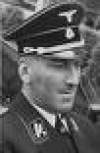
Continuation of Col. Robert Storey's Presentation of the Case Against the Gestapo. Dr. Kurt Kauffmann's Motion on Behalf of Kaltenbrunner Beginning of Lieutenant Commander Whitney R. Harris's Presentation of the Case Against Ernst Kaltenbrunner.
1958 Cold War: Guinea gains its independence: The former French colony of Guinea declares its independence on October 2, 1958, with Sekou Toure as the new nation’s first leader. Guinea was the sole French West African colony to opt for complete independence, rather than membership in the French Community, and soon thereafter France withdrew all aid to the new republic. . . . The concerns of U.S. officials over communist influences in Guinea, and the up-and-down relationship with Guinea were but precursors of other difficulties the United States would face in postcolonial Africa. As Guinea and other former colonies achieved independence during the post-World War II period, Africa became another battleground in the U.S.-Soviet conflict. [For further information, click here.]1962 Red scare: Folk group The Weavers banned by NBC after refusing to sign a loyalty oath:
The Weavers, one of the most significant popular-music groups of the postwar era, saw their career nearly destroyed during the Red Scare of the early 1950s. Even with anti-communist fervor in decline by the early 1960s, the Weavers' leftist politics were used against them as late as January 2, 1962, when the group's appearance on The Jack Paar Show was cancelled over their refusal to sign an oath of political loyalty. [For further details, Click here.]
1963 Various:
Geheimnis von Huntsville
Vietnam War: The Viet Cong winz its first major victory in the Battle of Ap Bac. [For further information, click here]
1967 Former actor Ronald Reagan begins his career in government when he is sworn in as the 33rd Governor of California. [For further information, click here]
1970 Statement made by Lord Shawcross (British Chief Prosecutor at Nuremberg):
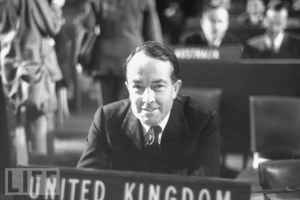
[Rudolf Hess's] life sentence by the IMT (International Military Tribunal) at Nuremberg was, compared with others, by no means a lenient one. I suspect that all of us on the Western side took it for granted that it would be subject to the same sort of commutation recognized in civilized systems of criminal justice and would not literally be for life. That he should continue to be imprisoned now seems to me an affront to all notions of justice." Note: The unrepentant Hess will remain in Spandau until his mysterious suicide. [See: Did Hess Deserve His Life Sentence?]
1980 U.S.-Russia detente ends:
On this day in 1980, in a strong reaction to the December 1979 Soviet invasion of Afghanistan, President Jimmy Carter asks the Senate to postpone action on the SALT II nuclear weapons treaty and recalls the U.S. ambassador to Moscow. These actions sent a message that the age of detente and the friendlier diplomatic and economic relations that were established between the United States and Soviet Union during President Richard Nixon's administration (1969-74) had ended. [For further information, click here]
Edited by Levi Bookin (Copy editor)
levi.bookin@gmail.com



Click to join 3rdReichStudies

FAIR USE NOTICE: This site may contain copyrighted material the use of which has not always been specifically authorized by the copyright owner. We are making such material available in our efforts to advance understanding of historical, political, human rights, economic, democracy, scientific, environmental, and social justice issues, etc. We believe this constitutes a 'fair use' of any such copyrighted material as provided for in section 107 of the US Copyright Law. In accordance with Title 17 U.S.C. Section 107, the material on this site is distributed without profit to those who have expressed a prior interest in receiving the included information for research and educational purposes. If you wish to use copyrighted material from this site for purposes of your own that go beyond 'fair use', you must obtain permission from the copyright owner.
Please note that the list-owner and the moderators are not responsible for, and do not necessarily approve of, the random ads placed on our pages by our web server. They are, unfortunately, the price one pays for a 'free' website.